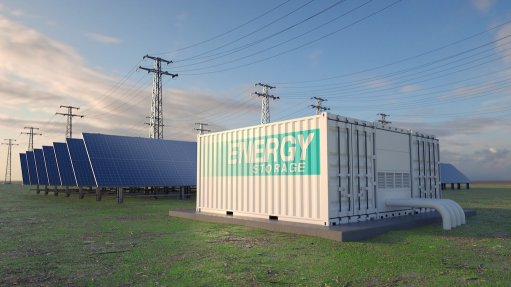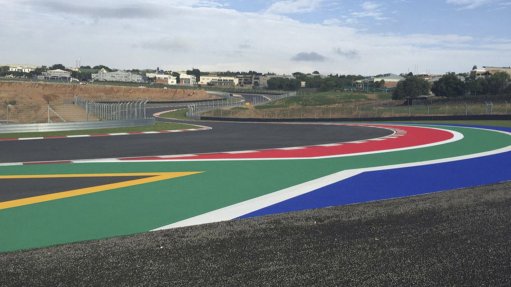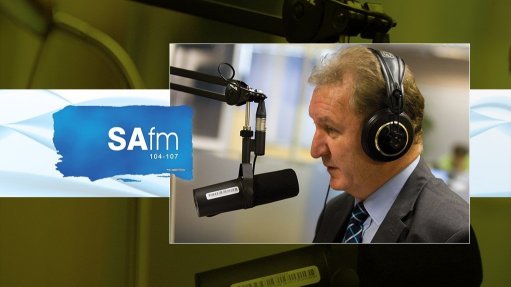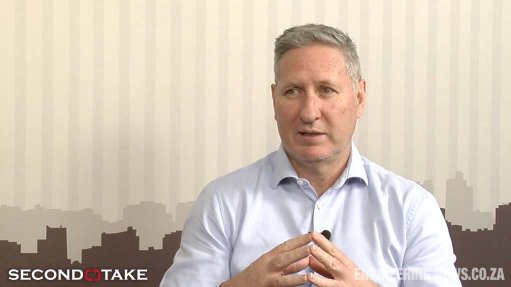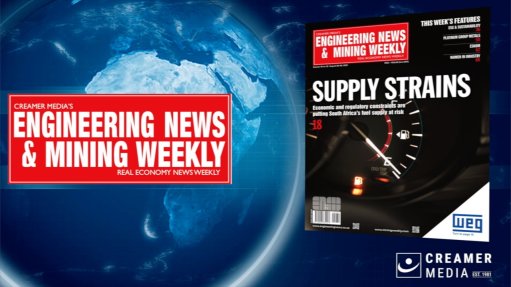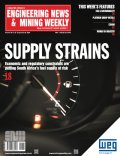Sector mulls duty’s future


VOLKER SCHüTTE Critics argue that the import duty has led to increased prices and hindered competition
The intricate task of reconciling the interests of divergent stakeholders, including local manufacturers and downstream industries, lies at the heart of ongoing deliberations by the International Trade Administration Commission of South Africa (Itac) and the Department of Trade, Industry and Competition (DTIC).
The focal point of these discussions is the future trajectory of the 15% import duty on aluminium flat rolled products (FRP), which was implemented two-and-a-half years ago and led to significant ramifications for South Africa’s aluminium sector, as well as its broader economic fabric, says aluminium supplier Metal and Tool Trade (MTT) director Volker Schütte.
The move, aimed at bolstering local aluminium production and potentially creating jobs, has instead yielded mixed results, leaving various stakeholders with diverse viewpoints.
However, as the debate continues to unfold, Schütte says the industry is monitoring the situation to see how a balance will be established between protectionism, the progress and growth of local industries and the broader requirements of economic advancement.
The duty is believed to “lack clear justification and continues to lack it”, he notes, adding that the ongoing re-evaluation shows “no significant link between the duty and global trade changes”.
The global aluminium market is dynamic – in 2021, demand-driven price hikes occurred, but as from 2022, global prices fell, less so in South Africa, with protectionist measures in South Africa, the US and Europe exacerbating the situation.
Schütte adds that China contributes about 64% of global aluminium production, while Russia and India add 8% each, covering 80% collectively. Europe and the US heavily rely on importing aluminium, causing market imbalances when major suppliers, such as Russia and China, are excluded.
In Schütte’s view, favouring open markets and fair competition trumps protectionism.
For example, key aluminium company Hulamin, which is headquartered in South Africa, has exported the majority of its production with the local South African market in second place in terms of tonnage, over the past 15 years.
Hulamin sought, in previous years, government support for an import duty on FRP on two occasions, but without success.
However, the DTIC “surprised the industry” by introducing the 15% import duty on these products in early 2021, Schütte says.
This move was accompanied by a rebate system, which permitted duty-free imports of products not produced by Hulamin, although these imports required approval from Hulamin before obtaining a rebate permit from Itac.
As a result, Hulamin gained renewed profitability, more than doubling its profits, as shown in the recently published results at the end of June, and created about 90 new jobs since 2021, though concerns have been raised about potential monopolistic behaviour.
“Critics argue that the import duty, coupled with Hulamin’s pricing strategy based on import parity, has led to increased prices and hindered competition, stifling opportunities for growth in the downstream sector,” Schütte adds.
The broader impact of the import duty has also come under scrutiny. Many major companies, particularly those active in the automotive and beverage can manufacturing sectors, have expressed reservations about the duty’s effect on competitiveness.
The sentiment has been fuelled by reported delivery delays and issues with the services offered by Hulamin, Schütte notes, stressing that the import duty has “made the local downstream industry less competitive, compared with imported finished products”.
There has also not been any other significant player in the downstream industry capitalising on these changes, as no new jobs or opportunities have surfaced.
“In fact, the industry’s import sector appears to be contracting further. In the context of MTT, the imposition of this duty necessitated passing on the resulting price increase to our customers, which was regrettable.”
He suggests that Itac’s commitment to reassessing the industry should reflect a proactive approach to gauge the real-world ramifications of the import duty.
“This iterative evaluation aims to ensure that the desired outcomes of the policy change are being realised. However, the sentiment from the downstream industry continues to lean towards the negative side, as statements made to Itac have shown.”
He adds that critics continue to advocate for an open market approach that champions equitable competition and provides a level playing field for all industry participants. This approach is regarded as fostering growth and generating employment opportunities.
Itac and the DTIC are exploring several avenues to try to balance disparate interests, with possible alternatives including a complete elimination of the import duty or, at least, a reduction to 5%.
However, the ultimate decision regarding the future of the import duty will “undoubtedly have significant implications” for South Africa’s aluminium sector and its broader economic landscape.
Itac committed to revisit the effect of the 15% import duty to assess whether the desired outcome has been achieved and how the downstream industry is coping, in addition to analysing how Hulamin is performing under this protection afforded by government, Schütte says.
This process will soon be concluded by Itac and Trade, Industry and Competition Minister Ebrahim Patel.
“The manner in which the decision is approached will shed light on the nation’s stance on protectionism, its commitment to local industry advancement and its dedication to broader economic progress,” Schütte concludes.
Comments
Announcements
What's On
Subscribe to improve your user experience...
Option 1 (equivalent of R125 a month):
Receive a weekly copy of Creamer Media's Engineering News & Mining Weekly magazine
(print copy for those in South Africa and e-magazine for those outside of South Africa)
Receive daily email newsletters
Access to full search results
Access archive of magazine back copies
Access to Projects in Progress
Access to ONE Research Report of your choice in PDF format
Option 2 (equivalent of R375 a month):
All benefits from Option 1
PLUS
Access to Creamer Media's Research Channel Africa for ALL Research Reports, in PDF format, on various industrial and mining sectors
including Electricity; Water; Energy Transition; Hydrogen; Roads, Rail and Ports; Coal; Gold; Platinum; Battery Metals; etc.
Already a subscriber?
Forgotten your password?
Receive weekly copy of Creamer Media's Engineering News & Mining Weekly magazine (print copy for those in South Africa and e-magazine for those outside of South Africa)
➕
Recieve daily email newsletters
➕
Access to full search results
➕
Access archive of magazine back copies
➕
Access to Projects in Progress
➕
Access to ONE Research Report of your choice in PDF format
RESEARCH CHANNEL AFRICA
R4500 (equivalent of R375 a month)
SUBSCRIBEAll benefits from Option 1
➕
Access to Creamer Media's Research Channel Africa for ALL Research Reports on various industrial and mining sectors, in PDF format, including on:
Electricity
➕
Water
➕
Energy Transition
➕
Hydrogen
➕
Roads, Rail and Ports
➕
Coal
➕
Gold
➕
Platinum
➕
Battery Metals
➕
etc.
Receive all benefits from Option 1 or Option 2 delivered to numerous people at your company
➕
Multiple User names and Passwords for simultaneous log-ins
➕
Intranet integration access to all in your organisation







